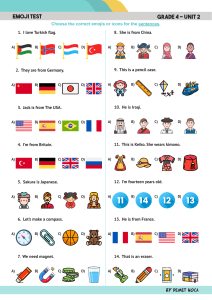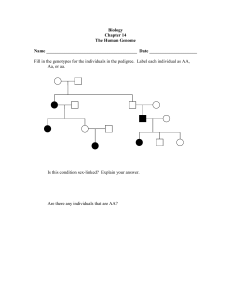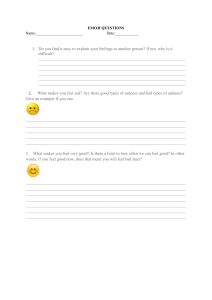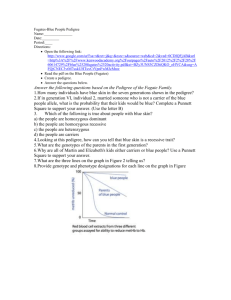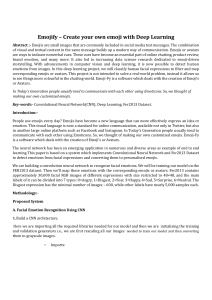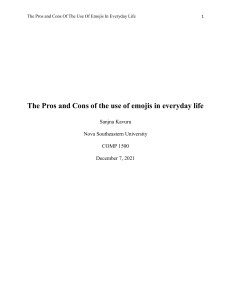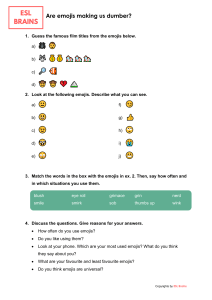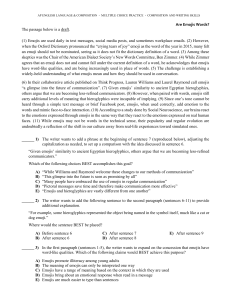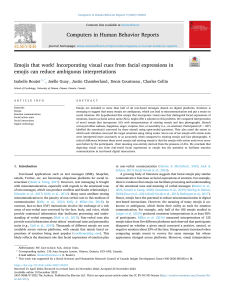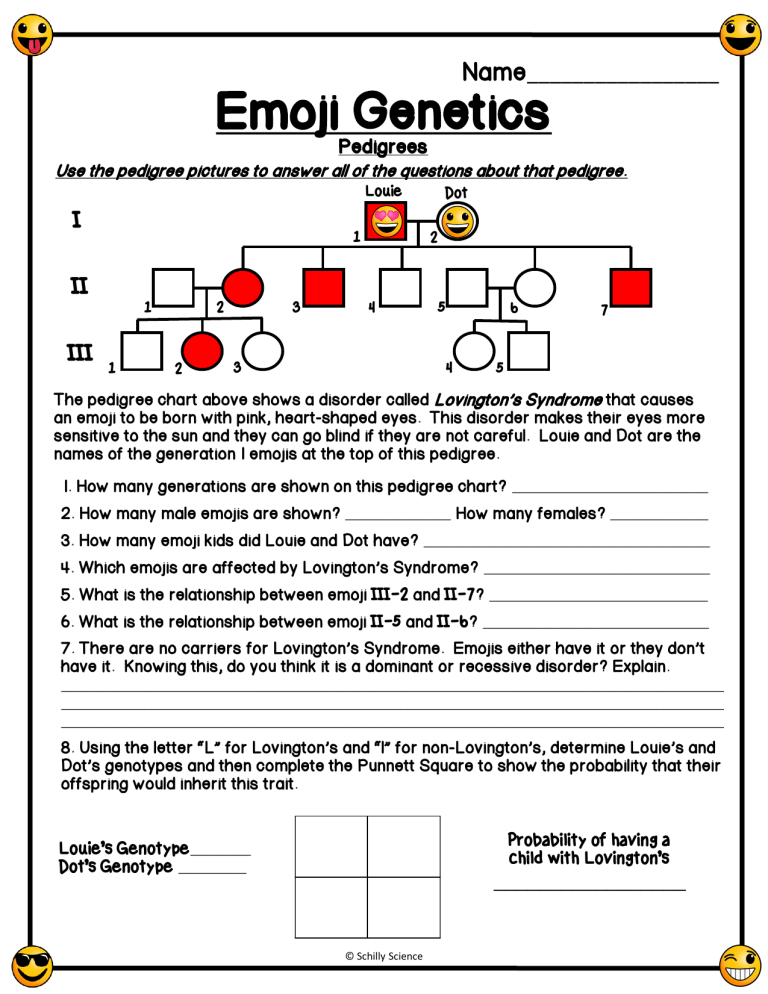
Name_________________ Emoji Genetics Pedigrees Use the pedigree pictures to answer all of the questions about that pedigree. Louie I 1 Dot 2 II 2 1 III 1 2 3 4 5 4 3 6 7 5 The pedigree chart above shows a disorder called Lo ing on S ndrome that causes an emoji to be born with pink, heart-shaped eyes. This disorder makes their eyes more sensitive to the sun and they can go blind if they are not careful. Louie and Dot are the names of the generation I emojis at the top of this pedigree. 1. How many generations are shown on this pedigree chart? __________________________ 2. How many male emojis are shown? ______________ How many females? _____________ 3. How many emoji kids did Louie and Dot have? ______________________________________ 4. Which emoji are affec ed b Lo ing on S ndrome? ______________________________ 5. What is the relationship between emoji III-2 and II-7? _____________________________ 6. What is the relationship between emoji II-5 and II-6? ______________________________ 7. There are no carrier for Lo ing on S ndrome. Emoji ei her ha e i or he don have it. Knowing this, do you think it is a dominant or recessive disorder? Explain. ________________________________________________________________________________________ ________________________________________________________________________________________ ________________________________________________________________________________________ 8. U ing he le er L for Lo ing on and l for non-Lo ing on , de ermine Lo ie and Do geno pe and hen comple e he P nne Sq are o ho he probabili ha heir offspring would inherit this trait. Probability of having a child with Lovington’s Louie’s Genotype________ Dot’s Genotype _________ _________________ © Schilly Science Some special emojis are born with red coloring instead of yellow. The chart to the right shows that this gene can be expressed fully or emojis can be carriers for this trait. Before answering the questions below, number each generation and individual on the pedigree chart. 9. How many generations are shown on this pedigree chart? _______________________________ 10. How many male emojis are shown? _________________ How many females? ______________ 11. Which gender can be a carrier for red coloring?________________________________________ 12. Which gender seems to be more affected?_____________________________________________ 13. What is this type of trait called?________________________________________________________ 14. Explain why all of the generation II females are carriers for the red color gene. ___________________________________________________________________________________________ ___________________________________________________________________________________________ ___________________________________________________________________________________________ 15. How is it possible for a female emoji to have red coloring? Explain your answer using evidence from the pedigree above to support your claim. ___________________________________________________________________________________________ ___________________________________________________________________________________________ ___________________________________________________________________________________________ 16. Is individual IV-5 affected, unaffected, or a carrier? Shade individual IV-5 appropriately and explain how you know. ________________________________________________________________ ___________________________________________________________________________________________ ___________________________________________________________________________________________ 17. The pedigree chart to the right shows the presence of an autosomal recessive disorder that causes emojis to be born with horns. An affected individual has a genotype of hh, while an unaffected individual has a genotype of HH or Hh. Fill in the genotypes for all individuals on the pedigree. 18. Is individual II-1 homozygous or 2 1 heterozygous? How do you know? ________________________________________ ________________________________________ Hh HH ________________________________________ 3 2 1 ________________________________________ © Schilly Science 1 HH hh I 2 II 3 5 4 III 4 5
